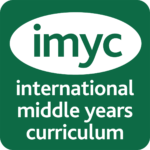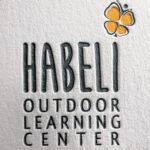Learning @ Sanskriti









Learning Defination
Learning is an ongoing process of acquiring knowledge, information and experience by transforming it into skills, understanding and attitude to apply in our daily life.
International Mindedness
Learners in Sanskriti International School respect and accept ourselves and others by embracing diversity and respecting cultures around the world to become a truly globalized 21st century citizens of the interconnected world.
Multiple Perspectives
Multiple Perspectives is when learners view an idea with different opinions and are able to look at the same theme in different ways to bring integration among the subjects so that their understanding is deepened.

Learning Policy
As educators, it is essential that we know our students in order to meet their learning needs and prepare them for what the future holds.
All our students belong to Generation Z (post-millennials, 1996 to present). Generation Z is known to be tech-savvy and able to cope with having up to five different screens in front of them at the same time. These groups of learners are very visual and hands on but it has been found that they have a short attention span of about eight seconds, unless appropriately engaged. They want to have an impact on the world and discover learning through curiosity.
As such, the Constructivism (Vygotsky, Plaget, John Dewey, Bruner) approach is adopted as the underlying educational theory behind what we do. Constructivism suggests that learning is an active process of creating meaning from different experiences. Students construct their own understanding and knowledge of the world through experiencing things and reflecting on those experiences. When students encounter something new, they will reconcile it with their previous ideas and experience, either assimilating or accommodating the new knowledge.
In view of this pedagogy and the profile of our students, our classroom practices are chosen specifically to ensure that we can achieve the SIS shared vision of the type of students we are trying to develop. This SIS vision are the overarching aspects of human development and the Personal Learning Goals and International Mindedness are the competencies (or pathway) to achieve this vision. The 5 ‘prescribed’ Classroom Practices listed below; Personalized Learning, Assessment for Learning, Innovative Learning, Collaborative Learning and Global Awareness are what we expect our teachers to follow at SIS. The examples given are not exhaustive but serve rather as a guide for good practice.
Classroom Practices
At Sanskriti International School, we aim to create an environment which complements our curriculum and creates an inspirational space for students to work in. Through creativity and interaction, our learning spaces will support and extend the student’s knowledge, skills and understanding. There will be a balance between working walls and celebratory walls, where work representing the entire curriculum as well as those that have been specifically selected to represent a range of abilities, but all of which represent commitment and effort.

Outdoor Learning
At Sanskriti International School, we believe outdoor learning is an integral component as our learners get an opportunity to learn in a free and different environment outside the four walls of the classroom. “ Let the children be free; encourage them; let them run outside when it is raining; let them remove their shoes when they find a puddle of water; and when the grass of the meadows is wet with dew, let them run on it, trample it, with their bare feet. Let them rest peacefully when a tree invites them to sleep beneath its shade; let them shout and laugh when the sun wakes them in the morning.”- Maria Montessori .This quote just matches our Habeli Outdoor Project perfectly.
If our education continues to box children in the classrooms and fails to make use of our most abundant, accessible and affordable resource for experiential learning, i.e. the wonderful rich Nepali landscapes relevant to our children in their learning, we cannot expect them to be equipped to meet the challenges of life ahead. In addition, we will have failed as educators and parents to help our learners develop a deep sense of connectedness to the idea of ‘home’ and their ability to imagine a life of dignity in their own communities.
This is the key reason for why Habeli Outdoor Learning Program has specifically been planned and integrated with our fifth grade curriculum as it brings rigour to the learning, is challenging, age appropriate, interesting and immensely fun. Parents volunteer to join us in the trips along with the learners and are a part of the great learning program.







